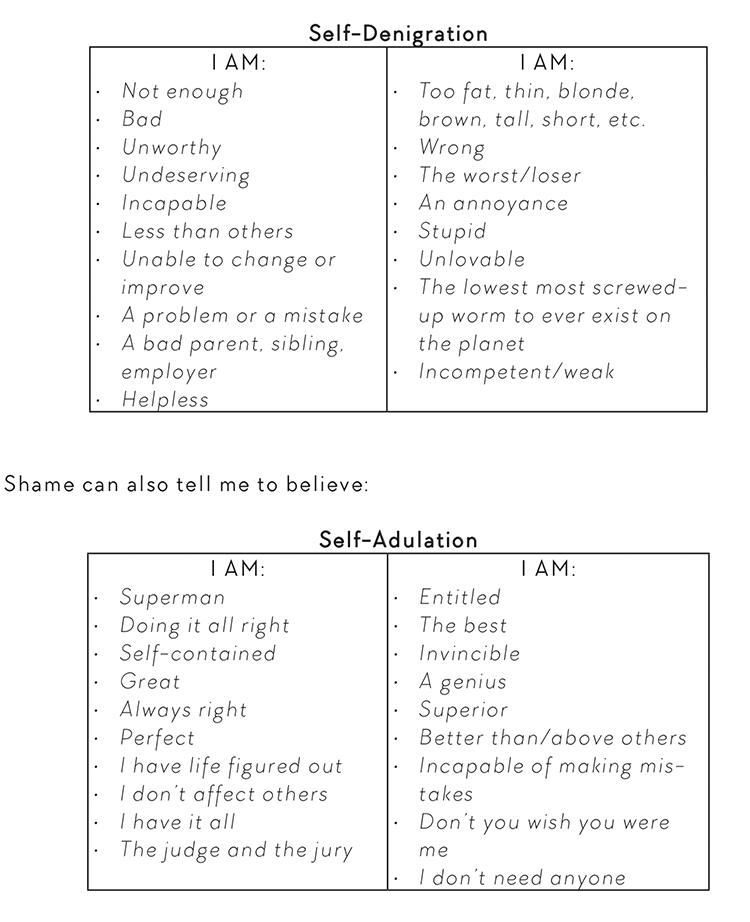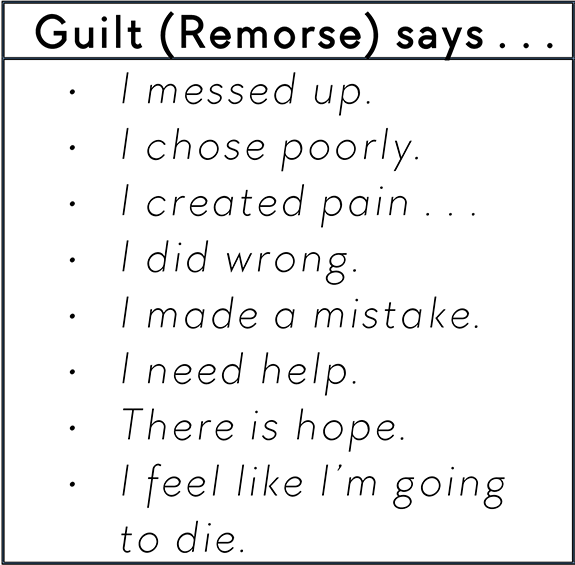Distortion vs Guilt: Regain Truth in Your Life
May 06, 2018Distorted thoughts & false beliefs are erroneous conclusions we make about ourselves, others, life, our experiences, reality, and ultimately about our worth and safety. Distorted thoughts and false beliefs form when I experience a painful, uncomfortable, or traumatic experience and I choose to perceive it in distortion: fear, confusion, lack of knowledge/facts, and a lack of Truth or Reality.
When I agree with false beliefs and distorted thoughts, I exit Reality and begin to question who I am — my Divinity, worth and safety. False beliefs invite me to conclude that I’m not enough, I’m unlovable, my needs are not important, and I don’t matter. When I choose to believe those statements, I will experience (feel) the most uncomfortable emotion that the human family has ever felt: shame — the feeling that I am bad, incapable, and unworthy — a searing feeling of fear, dread, not-enoughness, and hopelessness. If I choose to “buy into” or agree with distorted thoughts & false beliefs, I will experience continual distortion and deception about what is The Truth and what is Reality, and I will experience a constant feeling of shame. That is a bold statement. And it is the Truth—because it is my responsibility to perceive in honesty (recognize the Truth) about my experiences and take responsibility for my own thoughts, feelings, choices, and the outcomes of my choices. In this and future booklets, shame will be used to describe the emotion(s) you feel when you believe false beliefs and distorted thoughts.
Distortion (Shame)
When I choose to enter shame, it is a very personally irresponsible and confusing decision. I am thinking in a distorted manner, and therefore, everything from that point forward, will be not in Reality or Truth. Unfortunately, I am oftentimes not aware of my self-deception, and thus shame tells me and invites me to believe and feel that I am . . .
Both ends of the continuum of distorted thoughts—and the feelings they create—are all about who I am as a being. Since distortion attempts to define my being, and tell me there is no way to change who I am; I feel incapable of change or being anything other than what my distorted thoughts and false beliefs tell me I am.
These two types of distortion (self-denigration and self-adulation) motivate you to believe/feel you are stuck, trapped, and incapable of change (shame). Shame reinforces the assumption that you can’t: ask for help, be wrong or act vulnerable, say sorry, show weakness in any way, or share with others your fears and insecurities. Believing distortion creates an emotional illusion (shame) that nothing is fixable—you cannot repent, and you cannot act/be different. Therefore, you believe that you will live the rest of your life with the lies and distortion that your dishonest thoughts and false beliefs are telling you. Shame is the doorway into despair, hopelessness, additional distortions, isolation, suicidality, and fear.

Guilt & Remorse
Shame and guilt are oftentimes used interchangeably, however they are NOT synonymous with each other. Both guilt and shame create emotions of feeling “bad” about oneself — however, the feelings of “bad” are drastically different when shame is motivating the emotions, vs. when guilt is. Remorse/guilt is a very personally responsible emotional choice. It is governed by your active (conscious) choice to define your experiences in Truth. You experience remorse/guilt when you recognize and own (accept and be responsible for) the link between your uncomfortable emotions and your inappropriate choices and behavior. Guilt & remorse are appropriate emotions of feeling “bad” because I’ve made choices (consciously or unconsciously) to behave in ways that I would not like to behave in the future. Notice: When you experience guilt/remorse, you are feeling “bad” because of what you did/what you have done (behavior). Behavior is being critiqued — not your identity.

In Summary . . .
- Guilt/remorse is the realization that “I did wrong—I made a mistake.”
- Shame (Distortion) is the (false) realization that “I am wrong—I am a mistake.”
Beliefs formed by distortion become memories that operate in the background of our lives — waiting for new triggers to activate and strengthen them.
